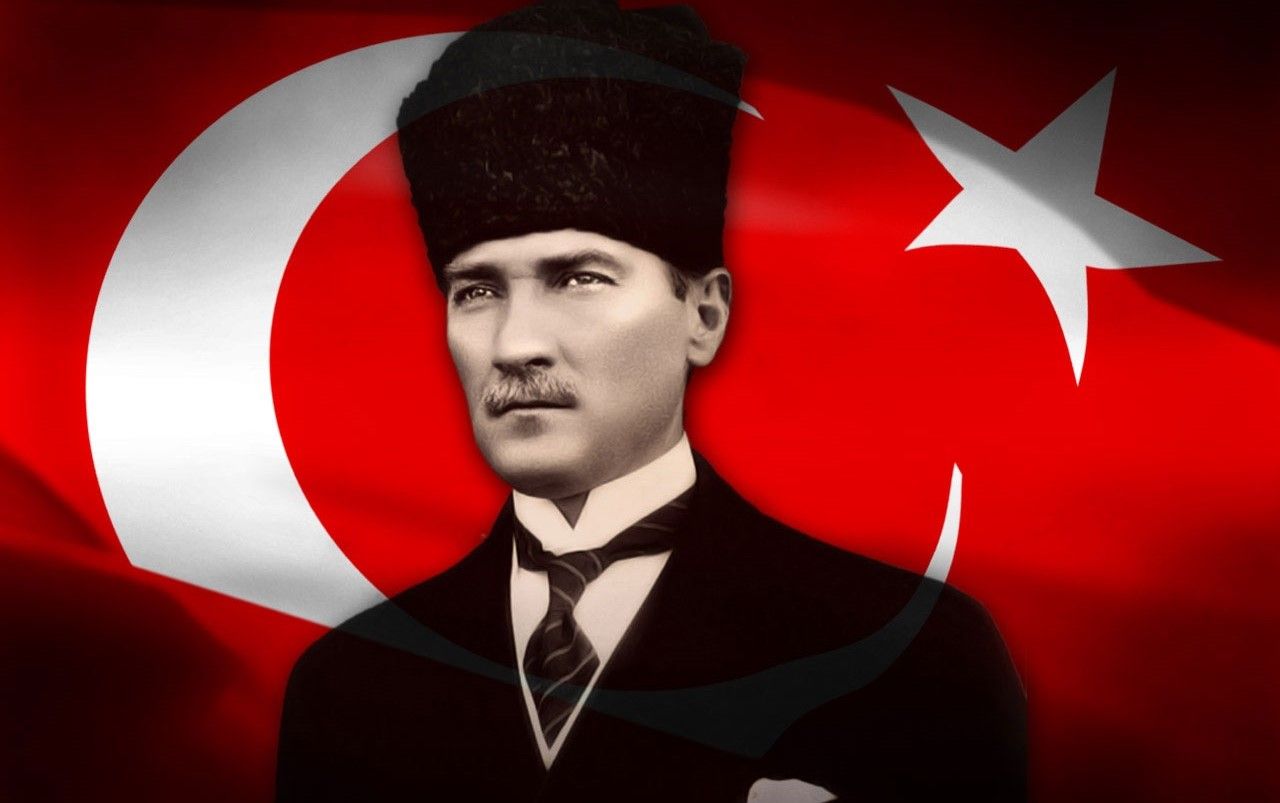A famous unwritten rule of history states that only the greatest personalities stand the test of time in order to remain in the memory of humankind. One of these notable men who continues to be present in the hearts of the Turkish people is Mustafa Kemal Atatürk, the ”Father of Turks”, as his surname specifies. Not only in the Middle East, but even in the most developed Western societies, he is remembered as a rare innovative mind who wholeheartedly assumed the laborious mission of modernizing his country.

His life began in 1881 in a small neighbourhood in Salonica, Ottoman Empire (Thessaloniki in present-day Greece). He grew up in a middle class family. Biographers up to our days are unsure about his religious beliefs. Some of them contest his Muslim origins, others claim that he was indeed born in a Muslim-Turkish family. However, he was not perceived as a particularly active religious person throughout his life. Born Mustafa, he received his second name Kemal, from his mathematics teacher ”in admiration of his maturity and capability”. This shows that from an early age, he was seen as an exceptional child in comparison with his peers.

After graduating from the Military Academy in Istanbul in 1905, he became a member of the Young Turks, a revolutionary movement of intellectuals. In a period of almost two decades he participates in the Turk Revolution in 1908, holds a number of relevant posts in the Ottoman army, fights in the first two Balkan Wars and World War I. After the Treaty of Sèvres was signed, stipulating the division of the Ottoman Empire, Mustafa Kemal demanded complete independence for Turkey. But this demand was not fulfilled until the end of the battles with the Greek and Armenian forces, which led to the signing of the Lausanne Treaty at the end of 1923.

1923 remains a memorable year for the recently formed nation-state. In this year the Republic of Turkey was established with Atatürk as its first president. The country was originally conservative, and the population started being more sceptical to some of the suggested changes from Mustafa Kemal. This initially lead to a number of revolts, and assassination attempts of Atatürk. However, the new-born mentality prevailed and the ideology of Kemalism developed into a powerful force in Turkey.

The ideology was in part based on a transition towards democracy and the building of a nation-state which resembled the Western models. However, these changes were not easily implemented, which was in part due to the rigid attitude of the population. Atatürk’s doctrine focused on the “Six Arrows” which embedded the concepts of realism and pragmatism along with: republicanism, populism, nationalism, secularism, statism and reformism. This meant that the influence of Islam on state affairs (law and schooling) was to be reduced. At the same time, much emphasis was put on the national education in the perspective of ‘civilizing’ the country, according to Western standards.

In the summer of 1924, Mustafa Kemal invited the American educational reformer John Dewey to Ankara, to advise him on how to reform the Turkish education system. One of his objectives was an increase in the public literacy. However, his goals stretched further than this. He argued that: ”In the face of knowledge, science, and of the whole extent of radiant civilization, I cannot accept the presence in Turkey’s civilized community of people primitive enough to seek material and spiritual benefits in the guidance of sheiks. […] The best, the truest order is the order of civilization. To be a man is enough to carry out the requirements of civilization.” Thus, it was evident that his supreme ideal was to separate the new state from the heritage of the former Ottoman Empire in the most important domains of life: social, economic, political and cultural.

His motivation to remodel society was persistent, and Atatürk clearly mentioned numerous future reforms which were to be implemented: civil and political equality for women, state support for arts and free education, the replacement of Arabic alphabet with the Latin one, a multi-party system, religious and ethnic tolerance, human rights, laicism and the imposition of Western dressing codes. This was to be accomplished by direct action, every encountered obstacle being immediately dislodged. Atatürk was of the opinion that the independence of a country could only be achieved by making great sacrifices.

Despite his controversial position in his early years, Atatürk remained popular under a wide range of people, and was seen as a unique leader. He initiated a variety of processes of democratization and positive change in the Republic of Turkey which are still lived by today. He was the founder of a totally different country in the Middle East, the creator of an unequalled spirit in a context dominated by Islam, a personality that emanated innovation through all his endeavours. On the day of his death, on November 10, 1938, at 09.05 the time stopped in Dolmabahçe Palace, so as the whole Muslim world could understand the dreadful suffering produced by the disappearance of its ”modern father”.
[su_quote cite=”Mustafa Kemal Atatürk”]Peace at home. Peace in the world.[/su_quote]
